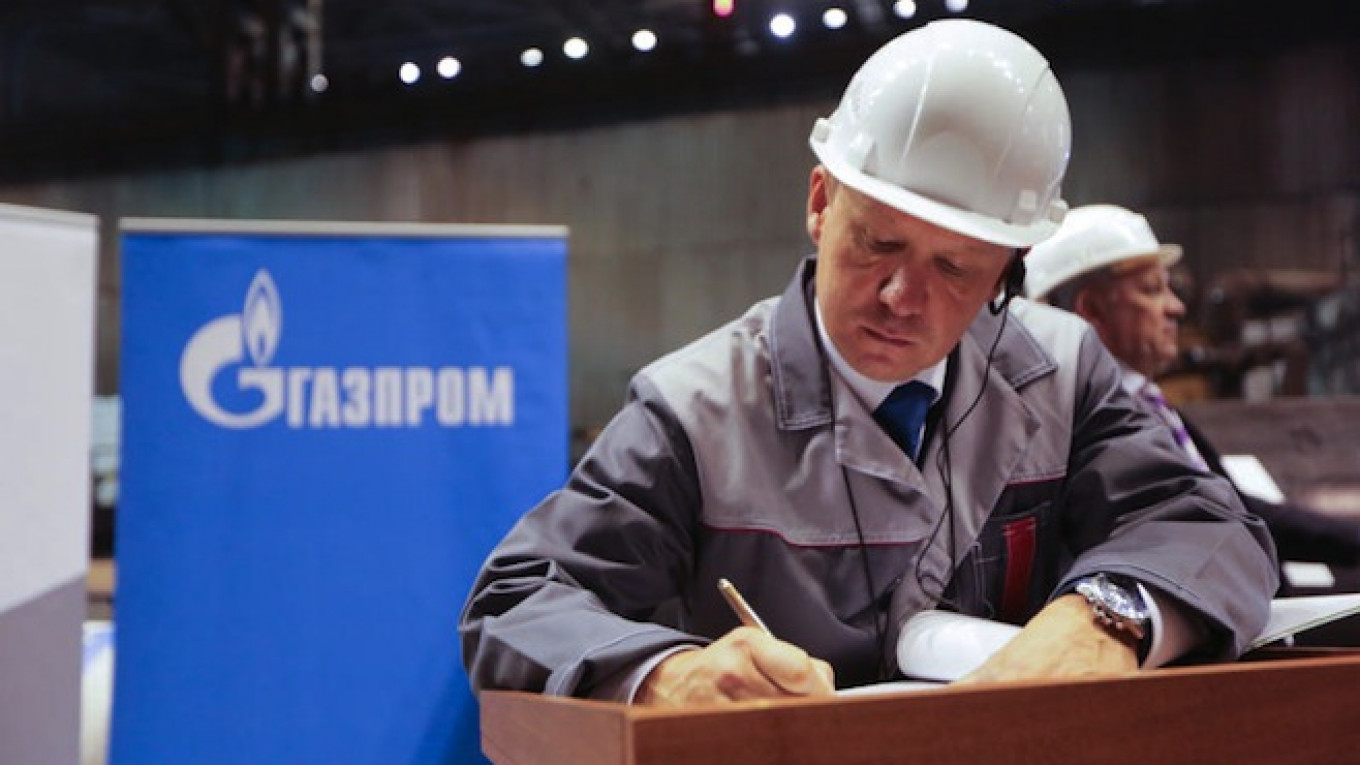Gazprom has almost halved the planned capacity of its TurkStream gas pipeline project to 32 billion cubic meters (bcm) per year from an original capacity of 63 bcm, Gazprom Chief Executive Officer Alexei Miller said Tuesday.
The TurkStream pipeline is an alternative to Russia's South Stream pipeline project to bring gas to Europe without crossing Ukraine, which was dropped last year due to objections from the European Commission.
Russia has long sought to circumnavigate Ukraine to pipe its gas to Europe because of pricing disagreements, which have led to disruptions in supplies to the European Union. Currently around 40 percent of Russian gas goes to Europe via Ukraine.
Miller, addressing an industry conference on Tuesday, said that Gazprom now planned to supply up to 32 bcm via TurkStream because it also plans to expand Nord Stream gas pipeline, which runs on the bed of the Baltic Sea to Germany.
"Speaking about designed capacity … we can talk that it will be created at volumes of up to 32 bcm," Miller said, adding that the reduction in capacity was linked to Gazprom's plans related to Nord Stream-2.
Gazprom had originally planned to supply Europe with a total 63 bcm by 2020 via TurkStream, with the first line of 15.75 bcm designed for Turkey and the rest flowing to Greece onwards to Europe.
Gazprom and a number of European energy companies have agreed to build stage 3 and 4 of Nord Stream, with capacity of 55 bcm per year, which should double the existing Nord Stream-1.
Gazprom has earlier said it would have to postpone the launch of TurkStream as Russia and Turkey did not sign an intergovernmental deal, essential for construction to start.
A Turkish energy official told Reuters on Tuesday that Gazprom had informed Ankara of its decision to halve the capacity of the planned TurkStream pipeline.
He said the reduction would not present a problem in terms of Turkey's gas supplies.
A Message from The Moscow Times:
Dear readers,
We are facing unprecedented challenges. Russia's Prosecutor General's Office has designated The Moscow Times as an "undesirable" organization, criminalizing our work and putting our staff at risk of prosecution. This follows our earlier unjust labeling as a "foreign agent."
These actions are direct attempts to silence independent journalism in Russia. The authorities claim our work "discredits the decisions of the Russian leadership." We see things differently: we strive to provide accurate, unbiased reporting on Russia.
We, the journalists of The Moscow Times, refuse to be silenced. But to continue our work, we need your help.
Your support, no matter how small, makes a world of difference. If you can, please support us monthly starting from just $2. It's quick to set up, and every contribution makes a significant impact.
By supporting The Moscow Times, you're defending open, independent journalism in the face of repression. Thank you for standing with us.
Remind me later.


